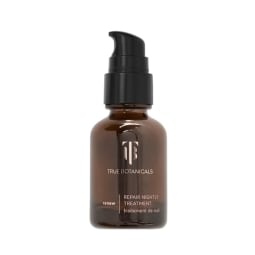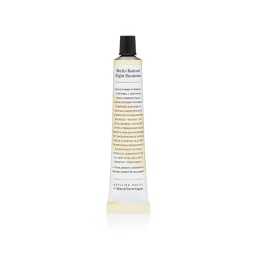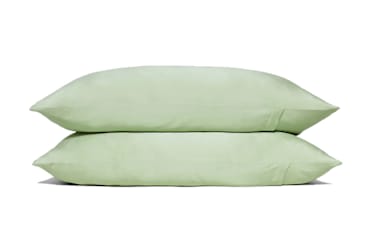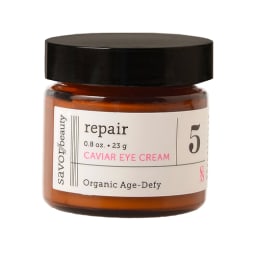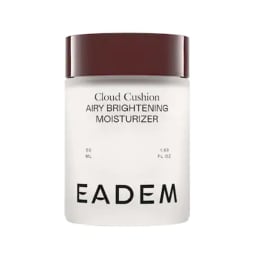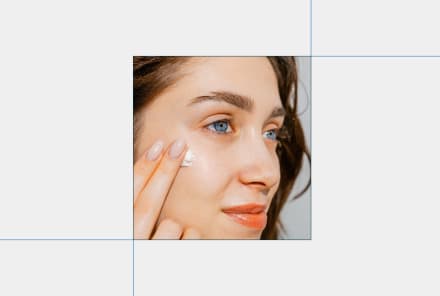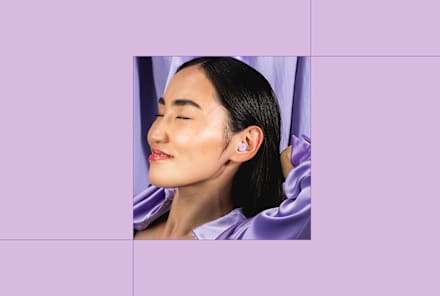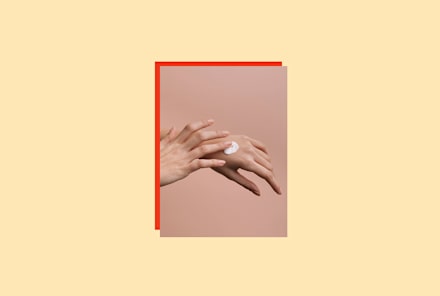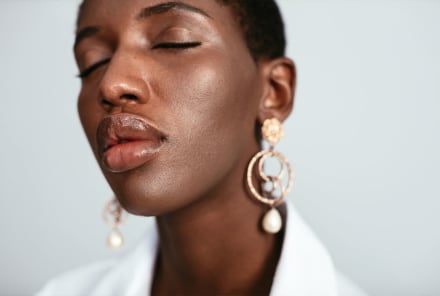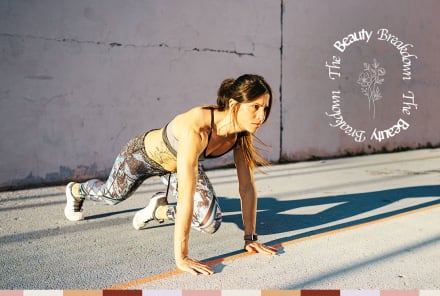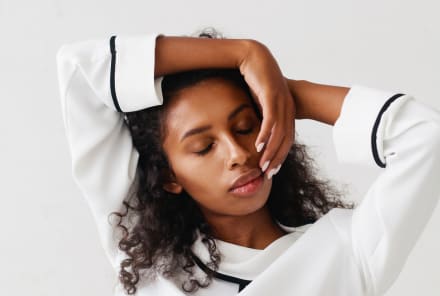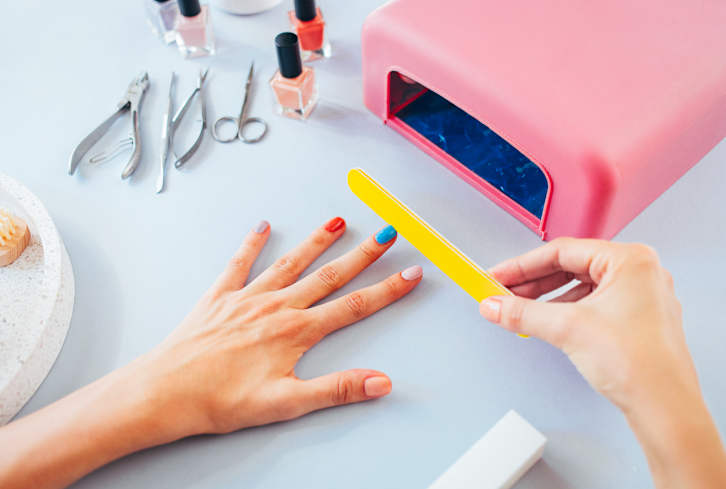Advertisement
Our Full Guide To Beauty Sleep: Mistakes, Expert Tips & Best Nighttime Products

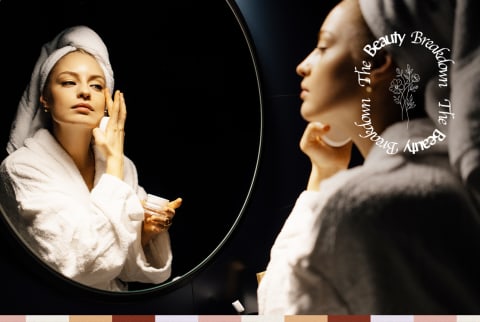
Your skin is a reflection of your overall health, able to clue you in to various lifestyle habits like diet, stress, and, yes, sleep. Ever experience a night of poor rest and notice under-eye shadows, increased breakouts, and a sallow skin tone?
Beauty sleep is very much real—in fact, your skin has its own circadian rhythm, and a balanced rhythm is key for healthy (read: glowing) skin cells. We're continuing to learn the most effective ways to honor skin's natural clock genes1; it's the next breakthrough in the beauty industry, IMO.
For now, here's what you need to know about caring for your skin while you snooze. Consider it the ultimate nighttime routine for a glowing complexion.

The 101 on beauty sleep
While you sleep, your skin kicks into repair mode, thanks to a little hormone called melatonin (often referred to as the "sleepy-time" hormone). "Melatonin is critically important for your skin and plays a significant role in skin repair from environmental exposure, UV light, stressors, pollution, and so on," says board-certified dermatologist Keira Barr, M.D., on an episode of Clean Beauty School. "If you're not resting, you're not generating that melatonin, and your skin isn't repairing itself."
In terms of repair, the skin sees a surge in HGH (human growth hormone) in the nighttime sleep cycle. The release of HGH helps rebuild body tissues2 and spurs increased cell production to invigorate and rejuvenate the dermis. When you lose sleep, your skin misses out on this important process, which is why your complexion might appear sallow and dull after a night of poor rest.
And if you lose sleep night after night, that deprivation can induce oxidative stress and lower your antioxidant defenses, making the body (and skin) vulnerable to oxidative damage.
Not to mention, losing sleep increases cortisol (the infamous stress hormone), which can break down collagen over time—research has demonstrated a link between shut-eye and collagen production3, which is why many experts consider sleep a vital part of any "anti-aging" skin routine.
You should also know that the skin is more permeable at night4, meaning it's much easier to lose significant hydration as you snooze.
That's why you might want to apply heavier, more occlusive moisturizers before bed to prevent precious moisture from seeping out overnight. In that same vein, that permeability makes your skin more receptive to skin care products, which is why you might layer on more intense actives before hitting the hay.

The 5 things we're getting wrong right now
Please be sure you aren't making these beauty sleep blunders:
- Ignoring the sleep-skin connection. We repeat: Beauty sleep is real, and losing significant shut-eye doesn't just result in dark, swollen shadows—your skin barrier and, naturally, collagen production can actually suffer over time. All the more reason to prioritize quality shut-eye.
- Not taking off your makeup. Always, always remove your makeup before bed. Even if your cozy pillow is calling your name, it's worth taking the extra few moments to wash. Frequently sleeping in your makeup can not only cause clogged pores but even lead to premature skin aging.
- Ignoring hydration. Again, your skin is more permeable at night, meaning it's more vulnerable to transepidermal water loss (or when water literally evaporates out of your pores). If you skip the moisturizer (or use one that's not hydrating enough), you'll likely be greeted with rough, flaky skin in the a.m.
- Layering too many actives. "More products are not necessarily better," board-certified dermatologist Joshua Zeichner, M.D., tells mbg about layering skin care. Mixing two potentially irritating products can be overly harsh on the skin. Plus, when layering different products, unfortunately, you don't know whether they will deactivate each other."
- Forgetting about your hands & lips. They may not be the biggest areas of real estate, but the skin on your hands and lips is super thin, making them one of the first areas to show signs of aging. Make sure to slather on a quality hand cream and lip balm before sliding into bed.

The 6 steps you need to know
Here's how to set yourself up for some beauty rest:
Catch some Zzz's!
This is much easier said than done, but do try to prioritize quality sleep as much as you can. Good restorative sleep is integral for good health, and experts recommend minimizing your screen time, avoiding late-afternoon caffeine, and curating a calming wind-down routine to ensure solid rest.
Find our full list of expert-backed sleep tips here, and if you need an extra nudge into dreamland, see here for our favorite natural sleep aids.
Wash your face
"If you only want to [wash your face] once a day, do it at night so you can take all the pollution off before you go to sleep," board-certified dermatologist Jeanine Downie, M.D., previously told mbg. Celebrity esthetician Joanna Vargas agrees: "Your skin must be clean before bed so you can repair the skin overnight and not break out more," she tells us.
And if you wear makeup, you might even want to opt for a double cleanse to make sure you lift off all the dirt and debris. Find our full guide here, as well as our most beloved face washes.
Use more potent actives
To help slough off skin cells and accelerate cell turnover, opt for a potent active (like retinol, glycolic, or lactic acid) to wake up with glowing skin. Again, just be sure not to layer too many actives at once: For example, if you have AHAs or BHAs in your cleanser, you might not want to follow up with a leave-on exfoliating treatment. Perhaps follow a skin cycling routine if you need help doling out your actives.
Use heavier creams
"We know that skin hydration levels tend to decline in the afternoon into the evening, which is why heavier night creams are useful," Zeichner explains. Look for ingredients like ceramides, peptides, and omega-3 fatty acids to cushion the skin barrier and lock in moisture.
Sleep on a silk or satin pillowcase
Silk and satin pillowcases are top-notch for skin and hair: They are hypoallergenic, antimicrobial5, moisture-wicking, and breathable. Rather than cotton or linen fabrics—which are porous and, therefore, rougher—silk and satin provide way less friction, so your skin and hair will glide across the surface sans tugging (which can combat sleep wrinkles). Porous fabrics also more readily absorb sebum and bacteria (hello, breakouts!), while silk and satin are far more repellent.
Find our favorite silk and satin pillowcases here.
Try a humidifier
We discussed how your skin loses precious moisture at night—and during the colder months, especially with indoor heating systems, this process happens even quicker. "Low humidity, cold air, brisk winds, [and] dry indoor heating are all factors that can increase moisture loss from the skin and increase risk of dry skin," says board-certified dermatologist Hadley King, M.D.
To combat that moisture loss in the air, add a humidifier to your bedroom while you snooze. Here are seven options that get the job done without taking up too much space on your nightstand.

3 extra ideas—in case you want to go all out
Looking to go above and beyond? I applaud your determination! Here are some extra tips to supercharge your beauty sleep:
- Set the scene: In need of a wind-down ritual? Snag a pillow mist, candle, and sunset lamp to create an environment for deep sleep. Bonus points if you opt for a sleep-enhancing meditation or journaling session—anything that will inspire the right mindset to snooze.
- Try to sleep on your back: "If you are one of those rare specimens who can control your sleep position while sleeping, then more power to you!" board-certified dermatologist Shereene Idriss, M.D., once told us about avoiding chest wrinkles. "Sleeping on your back will definitely slow the rate of progression of lines on your chest."
- Try slugging: Slugging is a skin care technique where you slather on a heavy-duty occlusive as the last step of your nighttime routine to prevent transepidermal water loss. It typically includes a petrolatum product, like Vaseline, but you can find a similarly textured jelly balm that uses plant-based oils instead. In fact, those good-for-you oils might make slugging even more effective.

The 10 products to try:
Best cleanser: Alpyn Beauty Juneberry & Collagen Hydrating Cream Cleanser
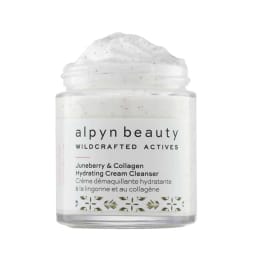
Pros
- Removes makeup & grime without stripping skin
Cons
- Dipping your fingers into the jar can introduce bacteria
Actives:
JuneberryJojoba estersSalicylic acidCocoa seed butterThis is my personal favorite nighttime cleanser at the moment. Cold creams were traditionally formulated with petrolatum and beeswax for a super-smooth texture, but this elevated version is completely mineral oil-free. Wildcrafted juneberry provides antioxidant protection and leaves my skin looking glowy and bright, while circular jojoba beads gently buff away excess skin and instantly smooth any bumpy texture. And the creamy, emollient-rich texture means my skin won’t ever feel too squeaky or tight.
Pros
- Visibly plumps skin
Cons
- Pricey
Actives:
PeptidesAstaxanthinCeramidesYes, your skin cells naturally repair while you snooze—but you can always send them a little love with this beloved treatment. With a blend of omega-3 fatty acids, ceramides, and peptides sourced off the Mendocino coast, the formula is like a feast for rough, parched skin. Not to mention, it glides on like silk.
Advertisement
Best overnight mask: Youth To The People Superberry Hydrate + Glow Dream Mask

Pros
- Fast results
Cons
- Very thick texture might not be best for oily skin
Actives:
MaquiVitamin CSqualanePrickly pearHyaluronic acidOvernight masks are extra potent, with active ingredients that go way beyond your standard night cream. This deeply hydrating confection is no exception: With antioxidant-rich superberries, squalane, hyaluronic acid, and a stabilized version of vitamin C, the mask nixes discoloration and evens skin tone, yes, overnight. mbg’s assistant beauty editor, Hannah Frye, swears by it—she says it’s one of the only overnight masks that actually keeps her skin comfortably hydrated all night long.
Pros
- Gentle yet effective
Cons
- Pricey
Actives:
Encapsulated retinolRetinyl sunflowerseedateBakuchiolGreen tea extractMy skin has truly never loved a retinol more than this night emulsion. It contains a blend of three different retinoid actives (encapsulated retinol, retinyl sunflowerseedate, and bakuchiol) for strong and effective results, sans irritation. Just a pearl-sized amount of product is all I need to wake up to glowing, supple skin.
Advertisement
Best wrinkle treatment: Kiehl's Retinol Fast-Release Wrinkle Reducing Night Serum
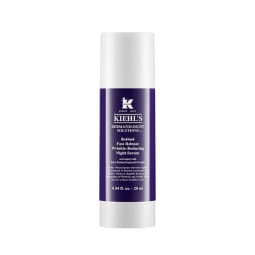
Pros
- More stable than other retinol formulas
- Fast results
Cons
- Might be too potent for sensitive skin
Actives:
Pure retinolRetinol is a notoriously unstable ingredient, since the vitamin A-derivate can easily degrade when exposed to light and air. This Kiehl’s serum mitigates the issue by allowing you to activate the serum yourself—simply unscrew the bottom cap, pour the retinol powder into the serum bottle, and shake it to activate. It makes you feel like a chemist in your own bathroom; and considering 100% of people showed a reduction in wrinkles after 10 weeks (according to a consumer study from the brand), it really puts in the work to soften fine lines. We also can’t ignore the eco-friendly packaging, which is made from 100% recycled material.
Pros
- Soft, cozy & good for your skin
Cons
- Only has one size
Actives:
100% mulberry silkIn case you haven’t yet browsed our silk pillowcase roundup, feel free to snag this luxe option. It’s made from the highest quality of 100% mulberry silk and OEKO-TEX certified free of harmful chemicals, toxins, and irritants. Plus, it comes in a range of calming colors—but this stunning sage green happens to be my favorite.
Advertisement
Pros
- Provides quick results
Cons
- Can leave an oily residue
Actives:
Cocoa seed butterCoQ10CaffeineWho doesn’t want to tap on a caviar-infused eye cream before cuddling into bed? I mean, can you think of anything more chic? Luxury aside, this moisturizing eye cream contains caffeine and CoQ10 to ease dark circles and boost collagen and skin repair—you’ll wake up in the morning with soft and supple under-eyes.
Pros
- Brightens dark spots overnight
Cons
- Consistency might be too thick for some
Actives:
PeptidesCeramidesSqualaneNiacinamideSnow mushroomGlycerinI’ve gone through two full jars of this fluffy formula, and will happily drop some coin for a lifetime supply. It’s my favorite nighttime moisturizer, hands down (if you’d like to read my full love letter to EADEM, check out this review). It relies on "Smart Melanin Technology," composed of ingredients that effectively treat overproduction of melanin (hyperpigmentation, melasma, etc.), without ever bleaching the skin or harming the moisture barrier, and it features features plant-based ceramides, glycerin, snow mushroom, and squalane to deeply hydrate. To top it all off, it has a breathable, airy finish that feels divine on the skin.
Advertisement
Best lip mask: Andalou Naturals 1000 Roses Lip Sleeping Mask
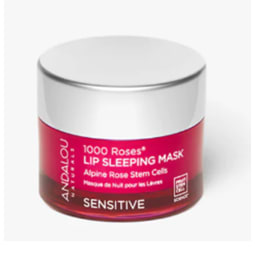
Pros
- Has a sweet, subtle fragrance
Cons
- Does not come with an applicator
Actives:
Rose stem cellsRosehip oilAcai extractGrape extractApple fruit extractJust as you might opt for a night cream to lock in precious moisture, you should do the same for your lips. Lip masks are heavier in consistency, meant to hydrate parched lips all night long. This one features antioxidant-rich Alpine rose stem cells, fruit extracts, and rosehip oil to soften your pout and keep it supple. I can personally attest to its hydrating powers—when I wake up in the morning, my lips still have a slight, goopy sheen.

The beauty breakdown
A good night's sleep is one of the most beneficial things you can do for your skin. Your skin's circadian rhythm determines when those cells kick into repair mode, and if you don't honor that natural process, your skin might become vulnerable to external aggressors and experience accelerated aging. All the more reason to optimize your sleep schedule, right?
